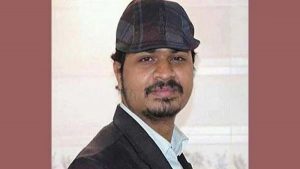Dhaka, Jan 10 – Ain O Salish Kendra (ASK), a human rights organisation, yesterday said that 2018 marked the highest number of extrajudicial killings in history, numbering at 466. The organisation urged the government to form a ‘judicial probe commission’ for investigating into the incidents of extrajudicial killings and enforced disappearances in the country.
“We want an investigation into all extra-judicial killings,” ASK executive director Sheepa Hafiza made the demand at a press conference at Dhaka Reporters’ Unity in the capital while giving her organisation’s observations on the human rights situation in 2018 based on news published in different media.
She also demanded finding out the victims of enforced disappearance on an emergency basis and to sign the ‘International Convention for the protection of all persons against enforced disappearance’.
A total of 466 people were victims of extra-judicial killing and enforced disappearances. Among them, 292 were during anti-narcotics drive alone that began since May and pursued until the national
the election on December 30, the organisation noted.
In comparison, a total of 162 suspects were killed by law enforcers during encounters, crossfire, gunfight, shootouts and under custody in 2017. The number was 195 in 2016, 192 in 2015, 158 in 2014 and 208 in 2013.
According to the ASK report, the rate of journalists being harassed has increased by 70% in the last year.
The report shows that the number of journalists being harassed has risen alarmingly from 122 in 2017 to 207 in 2018.
According to the report, three journalists were killed in different incidents in 2018; compared to one in 2017.
The human rights body also said that a total of 732 incidents of rape; 63 murder and 7 suicides after rapes, 1,011 children abused; 283 murder and 108 suicides after abuse, 67 people killed in political violence.
Regarding the incident of rape of women and children, Sheepa Hafiza said: “We haven’t seen effective trial and punishment that is why these crimes are recurring.”
A combined effort from the government and the general people is required to create a culture of human rights in the country, she added. – Staff Reporter




